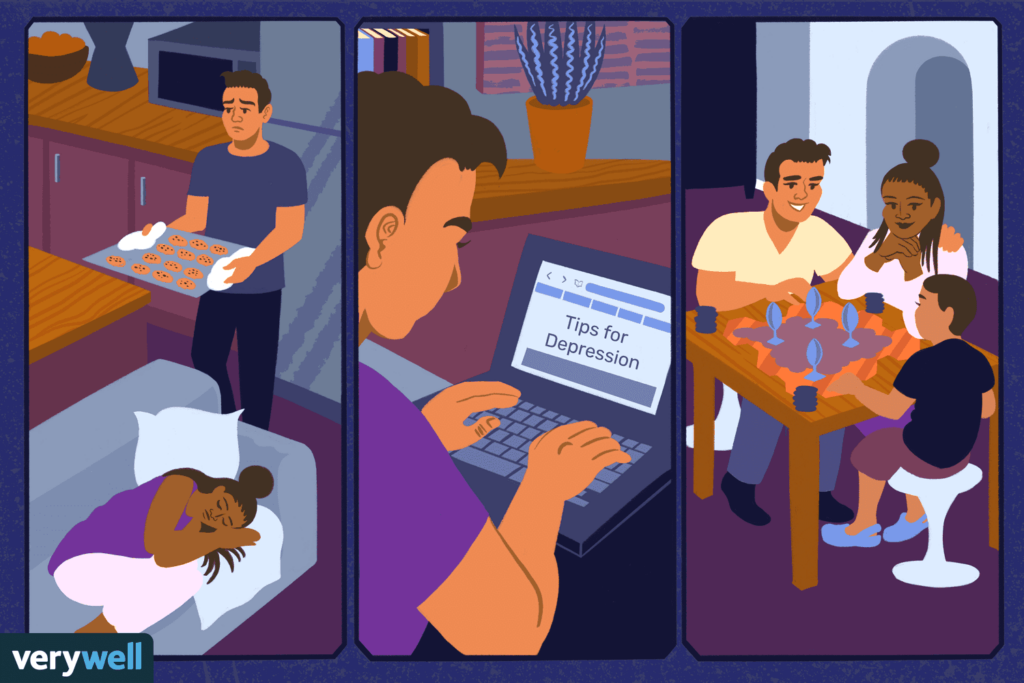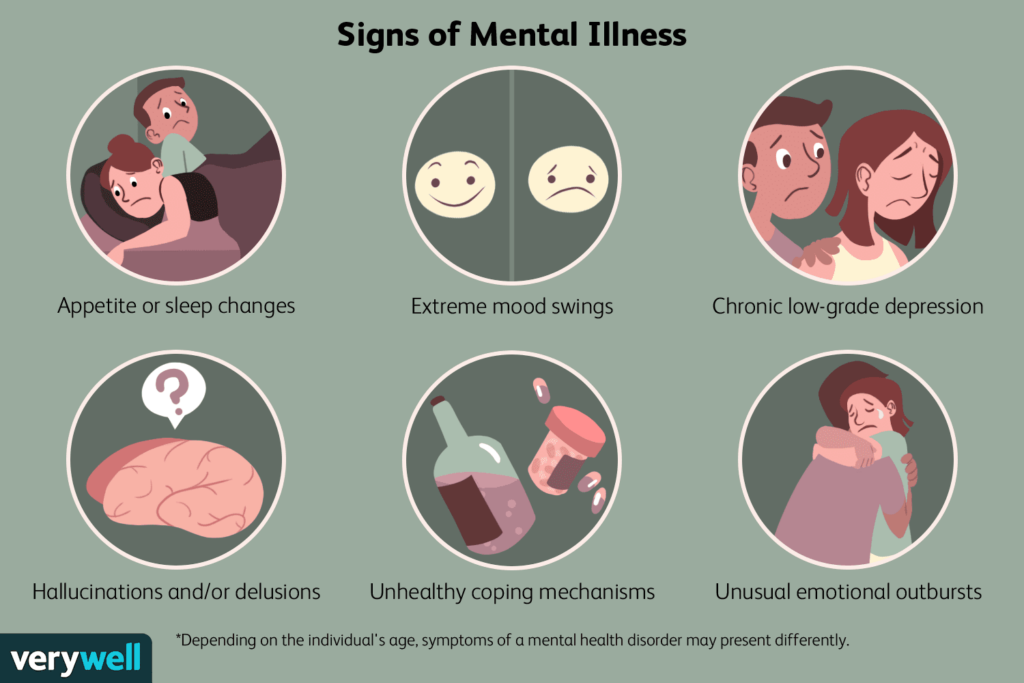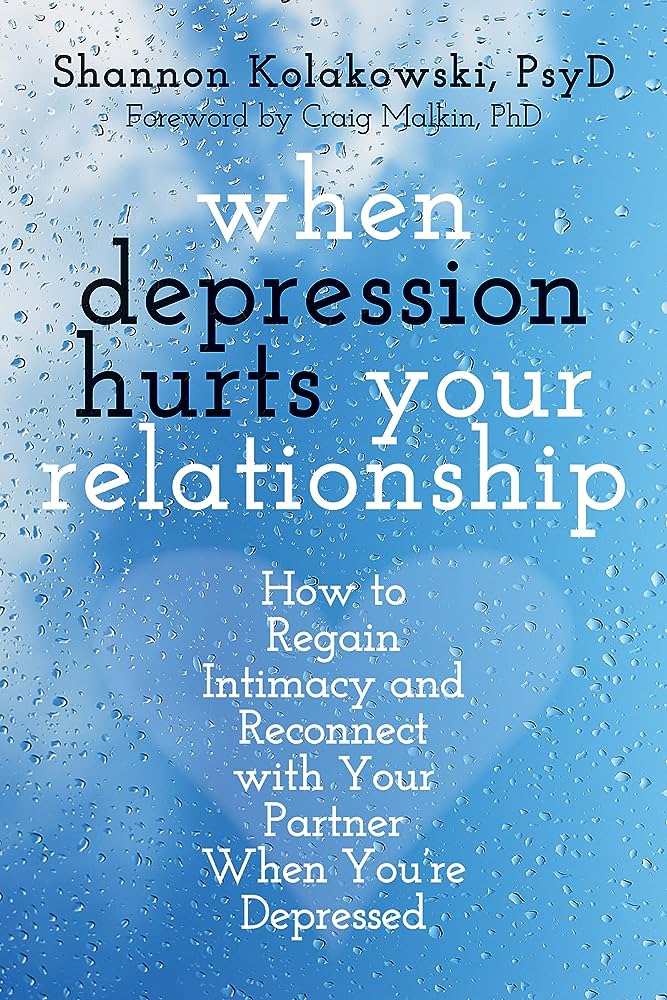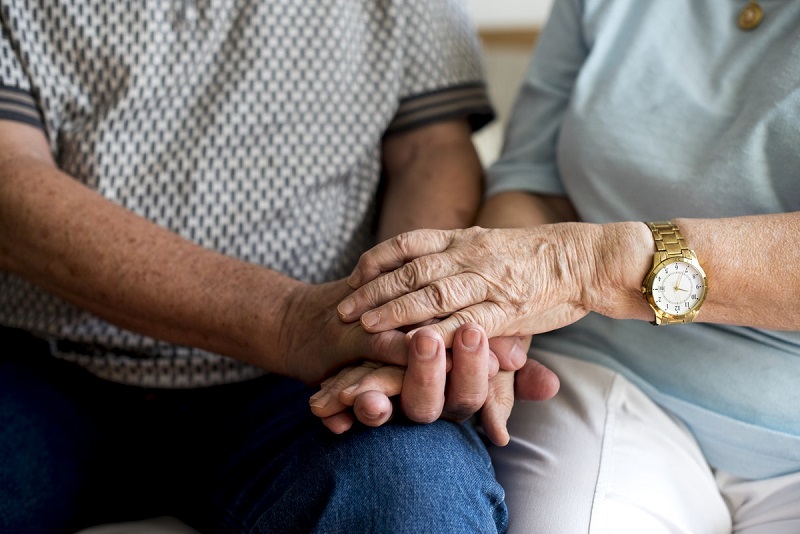In life, we all face challenges that can impact our relationships, and depression is no exception. When one partner experiences depression, it can create difficulties and strain on both individuals involved. However, if approached with empathy, understanding, and a united front, navigating the challenges of depression together can strengthen the bond between partners and lead to growth and healing. This article explores the ways in which depression can affect relationships and offers guidance on how to support your partner through their journey, cultivating a stronger connection in the process.

Understanding Depression
Definition of depression
Depression is a complex mental health disorder that affects millions of people worldwide. It is characterized by persistent feelings of sadness, hopelessness, and a loss of interest or pleasure in activities once enjoyed. Depression can impact various aspects of a person’s life, including their thoughts, emotions, behaviors, and overall well-being. It is important to understand that depression is not simply a temporary case of the blues, but a serious condition that requires proper diagnosis and treatment.
Types of depression
There are several different types of depression, each with its own unique characteristics. Major depressive disorder (MDD) is perhaps the most well-known type of depression, characterized by recurrent episodes of severe depression that can last for weeks or months. Persistent depressive disorder (PDD), also known as dysthymia, involves milder but chronic symptoms lasting for at least two years. Other types of depression include postpartum depression, seasonal affective disorder (SAD), and bipolar disorder, which includes episodes of depression and mania.
Impact of depression on individuals
Depression can have a profound impact on individuals, affecting their overall quality of life and functioning. It can significantly interfere with daily activities, work performance, relationships, and overall well-being. The symptoms of depression, such as persistent sadness, lack of energy, and difficulty concentrating, can make it challenging to meet personal and professional obligations. Depression can also contribute to increased physical health problems, such as chronic pain, decreased immune function, and sleep disturbances. It is essential to recognize the effects of depression to provide appropriate support and understanding to individuals dealing with this condition.
Challenges Faced in Relationships
Communication difficulties
Depression can significantly impact communication within relationships. The person experiencing depression may struggle to express their emotions clearly or may withdraw from interpersonal interactions altogether. This can lead to misunderstandings, frustration, and feelings of isolation between partners. It is vital to acknowledge these communication difficulties and find alternative ways to express and understand each other’s needs during this challenging time.
Emotional disconnect
Depression often leads to emotional disconnect between partners. The person with depression may experience a lack of interest or pleasure in activities they once enjoyed, including emotional connection with their partner. This emotional disengagement can place a strain on the relationship, causing the non-depressed partner to feel neglected or unloved. It is crucial to communicate openly and compassionately about these feelings of disconnection and seek ways to rebuild emotional intimacy.
Loss of interest in activities
Depression often robs individuals of their motivation and enjoyment of activities they used to love. This can include shared hobbies, outings, or even simple daily routines. The non-depressed partner may feel frustrated or saddened by this loss, as it can impact the quality of time spent together. Encouraging the depressed partner to engage in activities they once enjoyed, even if they initially resist, can help reignite their interests and foster a sense of connection within the relationship.
Lack of intimacy
Intimacy, both emotional and physical, can suffer greatly in relationships affected by depression. The person with depression may experience a decrease in libido, making it challenging to engage in intimate moments. The non-depressed partner may struggle with feelings of rejection or frustration. It is important to have open and non-judgmental conversations about intimacy, recognizing that depression is impacting this aspect of the relationship and exploring ways to maintain and enhance emotional and physical connections.
Increased irritability and anger
Depression can also manifest as increased irritability and anger, leading to conflicts within the relationship. The person with depression may lash out at their partner or become easily frustrated over minor issues. This can create a hostile or tense environment, further exacerbating relationship difficulties. It is crucial to approach these situations with empathy and patience, recognizing that irritability and anger are symptoms of the illness rather than personal attacks. Encouraging professional help and implementing healthy coping strategies can help manage these challenges.

Building a Supportive Environment
Fostering open communication
Open communication is the cornerstone of a healthy and supportive relationship, especially when dealing with depression. Creating a safe space where both partners can express their thoughts, feelings, and concerns without fear of judgment is crucial. Regularly checking in with each other, actively listening, and validating each other’s experiences can help establish effective communication and strengthen the bond between partners.
Educating oneself about depression
Understanding depression is key to providing effective support. Educating yourself about depression, its symptoms, causes, and available treatments can help you better comprehend your partner’s experiences and challenges. Read books, articles, attend workshops, or consult with mental health professionals to gain insights into depression and equip yourself with the knowledge necessary to support your loved one effectively.
Providing emotional support
Emotional support is vital for individuals dealing with depression. Show empathy, validate their experiences, and reassure them that they are not alone. Encourage open conversations about their feelings and actively listen without judgment. Offering a shoulder to lean on and expressing your unwavering support can make a significant difference in their journey towards recovery.
Reducing stigma and seeking professional help
It is essential to reduce the stigma surrounding mental health and encourage your partner to seek professional help. Depression is a medical condition that often requires treatment from mental health professionals. Encourage your loved one to consult with a therapist or psychiatrist who can provide a proper diagnosis and develop an individualized treatment plan. Assure your partner that seeking help is a sign of strength and that you will be there to support them throughout the process.
Establishing routines and structure
Depression can often disrupt daily routines and leave individuals feeling overwhelmed or aimless. Establishing routines and structure can help provide a sense of stability and purpose. Work with your partner to create a daily schedule that incorporates self-care activities, hobbies, work responsibilities, and time spent together. Having a predictable routine can help alleviate some of the stress associated with depression and provide a framework to navigate daily life.
Encouraging self-care
Self-care plays a critical role in managing depression. Encourage your partner to prioritize their well-being by engaging in activities that promote self-care. This can include maintaining a healthy sleep schedule, eating nutritious meals, exercising regularly, and participating in activities that bring joy and relaxation. Supporting your partner in adopting and maintaining these self-care practices can contribute to their overall well-being and recovery.
Empathy and Compassion
Understanding the experience of depression
Developing a deep understanding of the experience of depression is vital in cultivating empathy. Educate yourself about the symptoms, triggers, and challenges commonly faced by individuals with depression. This understanding will help you empathize and relate to your partner’s struggles on a more profound level.
Listening actively and without judgment
When your partner opens up about their feelings and experiences, practice active listening. Give your full attention, maintain eye contact, and avoid interrupting. Allow them to express themselves fully without judgment or criticism. Providing a compassionate and non-judgmental space for them to share their thoughts and emotions can be incredibly healing and comforting.
Validation and reassurance
Validation is crucial in helping your partner feel seen, heard, and understood. Acknowledge their emotions and experiences as valid and real, even if you may not fully comprehend their depth. Assure your partner that you are by their side, offering reassurance and support throughout their journey. Validating their struggles and emotions helps foster trust, compassion, and a sense of security within the relationship.
Avoiding blame and criticism
It is important to remember that depression is not a choice or a character flaw. Avoid blaming or criticizing your partner for their symptoms or behaviors related to their depression. Instead, seek to understand the illness and its impact, offering support and encouragement rather than negative judgments. Blame and criticism can further erode your partner’s self-esteem and worsen their depressive symptoms.
Practicing patience and understanding
Depression can be a long-term battle, and recovery may take time. Be patient with your partner as they navigate their journey towards healing. Understand that there will be ups and downs, and setbacks are a normal part of the process. Practicing patience, unconditional love, and understanding will help create a supportive and nurturing environment for your partner.

Developing Healthy Coping Strategies
Encouraging therapy and medication
Therapy and medication are often key components of treating depression. Encourage your partner to seek professional help and support them in attending therapy sessions or consultations with a psychiatrist. Therapy can provide valuable tools, coping strategies, and a safe space for them to explore their emotions. Medication, when prescribed by a medical professional, may also help alleviate depression symptoms and promote overall well-being.
Engaging in enjoyable activities together
Engaging in enjoyable activities together can have a positive impact on both partners. Explore shared hobbies, take walks, watch movies, or try new experiences as a couple. By participating in activities that bring joy and happiness, you can create enjoyable and uplifting moments that counterbalance the challenges of depression.
Exploring relaxation techniques
Help your partner explore relaxation techniques that can help reduce stress and promote emotional well-being. This can include practices such as deep breathing exercises, meditation, mindfulness, or gentle yoga. These techniques can help calm the mind, alleviate anxiety, and foster a sense of inner tranquility.
Encouraging exercise and physical activity
Regular exercise has been shown to have a positive impact on mental health, including depression. Encourage your partner to engage in physical activities they enjoy, such as walking, jogging, dancing, or any other form of exercise. Physical activity releases endorphins, which are natural mood elevators, and can help combat the symptoms of depression.
Promoting healthy sleep patterns
Sleep disturbances are common among individuals with depression. Promote healthy sleep patterns by establishing a soothing bedtime routine and creating a sleep-friendly environment. Encourage your partner to practice good sleep hygiene, which includes avoiding screens before bed, maintaining a consistent sleep schedule, and creating a calm and comfortable sleeping environment.
Encouraging social connections
Isolation is a common symptom of depression, but maintaining social connections is crucial for overall well-being. Encourage your partner to engage in social activities, whether it be spending time with friends, joining support groups, or participating in community events. Foster a supportive network of friends and loved ones who understand and can offer additional support during challenging times.
Supporting the Depressed Partner
Showing empathy and understanding
One of the most important ways to support a depressed partner is by showing empathy and genuine understanding. Acknowledge the challenges they face and let them know that their feelings are valid. Offer a compassionate and non-judgmental ear, allowing them to express themselves openly and honestly.
Encouraging self-care practices
Encourage and support your partner in prioritizing their self-care. Remind them of the importance of engaging in activities that promote their well-being, such as exercise, proper nutrition, and hobbies they enjoy. Reinforce the idea that self-care is not selfish, but necessary for their overall mental health and recovery.
Assisting with daily tasks
Depression can make even the simplest daily tasks feel overwhelming. Offer assistance with household chores, errands, or other responsibilities to alleviate some of the burdens your partner may be feeling. Collaborate on tasks and create a division of labor that takes into account your partner’s current capacity.
Being patient with mood swings
Depression can often cause significant mood swings, ranging from sadness and irritability to apathy and withdrawal. Be patient and understanding when your partner experiences these fluctuations. Recognize that these mood swings are symptoms of the illness and not a reflection of your relationship or their feelings towards you.
Recognizing warning signs of worsening depression
It is important to be vigilant and recognize warning signs of worsening depression. Educate yourself about the red flags that indicate a decline in mental health. These signs may include increased isolation, changes in appetite or sleep patterns, a lack of interest in previously enjoyed activities, or an escalation of depressive symptoms. If you notice these warning signs, encourage your partner to seek professional help promptly.
Encouraging professional help if needed
If your partner’s depression becomes severe or if they are struggling to manage their symptoms, encourage them to seek professional help. Be their ally in finding a therapist or psychiatrist who specializes in treating depression. Offer to accompany them to appointments or help them navigate the process of finding appropriate mental healthcare.

Couples Therapy for Depression
Benefits of couples therapy
Couples therapy can be a valuable resource for couples navigating the challenges of depression. It provides a structured and supportive environment for both partners to address the impact of depression on their relationship. Couples therapy can help improve communication, enhance problem-solving skills, and strengthen the emotional connection between partners.
Improving communication and problem-solving
Depression can significantly strain communication within a relationship. Couples therapy can offer a space where partners can openly express their needs, concerns, and emotions. Therapists can teach effective communication techniques, such as active listening and validation, to help couples navigate difficult conversations with empathy and understanding. Furthermore, couples therapy can help address and resolve problems that may have arisen due to the impact of depression on the relationship.
Addressing relationship dynamics
Depression often affects the dynamics within a relationship. It can lead to role reversals, where the non-depressed partner takes on more responsibilities and becomes a caregiver. Couples therapy can help navigate these changes, providing a safe environment to discuss these shifts and rebalance the relationship in a healthier and more equitable way.
Reducing blame and resentment
Depression can create feelings of blame and resentment within a relationship. The depressed partner may blame themselves for their mental health struggles, while the non-depressed partner may feel resentful due to the strain depression places on the relationship. Couples therapy can address these emotions, helping couples understand and navigate the underlying causes of blame and resentment in a supportive and non-judgmental space.
Creating shared goals and strategies
Couples therapy provides an opportunity to create shared goals and strategies to manage depression as a team. The therapist can help both partners understand the impact of specific behaviors and patterns on the relationship and develop strategies to overcome these challenges together. By setting shared goals, couples can work towards a healthier and more fulfilling relationship, even in the face of depression.
Relationship Self-Care
Maintaining individual hobbies and interests
Maintaining individual hobbies and interests is essential for both partners in a relationship affected by depression. Encouraging and supporting each other’s pursuits outside of the relationship can provide a sense of fulfillment and personal growth. It also ensures that each partner has a source of joy and self-expression independent of the relationship, contributing to overall relationship satisfaction.
Setting boundaries and prioritizing self-care
Setting boundaries and prioritizing self-care are crucial aspects of maintaining a healthy relationship while supporting a partner with depression. It is vital to establish boundaries around personal time, emotional availability, and responsibilities within the relationship. Prioritizing self-care ensures that both partners have the resources and energy needed to navigate the challenges of depression effectively.
Seeking support from friends and family
Seeking support from friends and family is invaluable when supporting a partner with depression. Reach out to your support network, keeping them informed about your partner’s condition, and solicit their help and understanding. Share your experiences and feelings with trusted loved ones who can offer a listening ear, advice, or practical assistance. Remember, it is okay to lean on others during difficult times.
Attending workshops or support groups
Workshops and support groups can provide an additional source of support for both partners. These platforms offer opportunities to connect with others who may be going through similar experiences and provide a space for sharing coping strategies and insights. Attending workshops and support groups can help reduce feelings of isolation and provide a sense of belonging and understanding.
Taking breaks and practicing self-compassion
Taking breaks and practicing self-compassion is vital for both partners’ well-being. Plan regular breaks where you can focus on self-care, recharge, and reflect. Engage in activities that bring you joy and relaxation, and be kind to yourself when facing challenges. Remember that taking care of yourself is not selfish but necessary for maintaining a healthy and supportive relationship.

The Role of Friends and Family
Educating loved ones about depression
Educating your friends and family about depression is crucial in creating a supportive network. Help them understand the symptoms, challenges, and effective ways to support individuals with depression. Provide them with resources such as articles or books about depression and its impact on relationships. By raising awareness and reducing the stigma surrounding mental health, you are fostering a compassionate environment for both you and your partner.
Providing emotional support
Friends and family can play an essential role in providing emotional support for both partners. Be there to lend a listening ear, offer encouragement, and show understanding. Acknowledge the difficulties your partner is facing and express your empathy and support. Your emotional support can help alleviate some of the emotional burdens and provide a sense of comfort for both partners.
Avoiding judgment and offering kindness
It is essential for friends and family to avoid judgment and instead offer kindness and understanding. Recognize that depression is an illness and not a personal failing. Refrain from offering unsolicited advice or opinions about your partner’s situation. Instead, provide a compassionate and non-judgmental space where they can feel safe and supported.
Helping with practical tasks
Friends and family can provide practical assistance to alleviate some of the burdens faced by the couple affected by depression. Offer to help with household chores, childcare, or other responsibilities that may become overwhelming for the couple. By lessening the load, you are creating space for the couple to focus on their relationship and self-care.
Encouraging professional help
Friends and family can play a vital role in encouraging a partner with depression to seek professional help. Express your concern and support their decision to consult with therapists or psychiatrists. Offer assistance in finding healthcare professionals specializing in depression and help them navigate the process of seeking treatment. Your encouragement and support can make a significant difference in their journey towards recovery.
The Importance of Self-Care
Recognizing and managing caregiver burnout
For the non-depressed partner, it is crucial to recognize and manage caregiver burnout. Caregiving can be emotionally and physically demanding, and it is essential to prioritize your own well-being. Be aware of signs of burnout, such as exhaustion, isolation, and increased irritability. Seek support from friends, family, or professionals to avoid burnout and maintain your own mental health.
Maintaining personal well-being
Maintaining personal well-being is critical for both partners in a relationship affected by depression. Prioritize activities that bring you joy and fulfillment, take care of your physical health, and nurture your emotional well-being. Engage in self-care practices that help you recharge and rejuvenate, ensuring that you have the resources to effectively support your partner.
Prioritizing self-care
Self-care is not a luxury but a necessity, especially when supporting a partner with depression. Make self-care a priority and engage in activities that replenish your energy and uplift your spirits. This can include exercise, spending time with loved ones, pursuing hobbies, meditation, or practicing mindfulness. Prioritizing self-care allows you to show up fully for your partner and maintain a healthy balance in your own life.
Seeking own support system
Supporting a partner with depression can be challenging, and having your support system is crucial. Seek out friends, family, or support groups who can provide understanding, empathy, and a listening ear. Share your experiences and feelings with these trusted individuals, allowing yourself to be supported during this difficult time.
Creating a healthy work-life balance
Maintaining a healthy work-life balance is essential when supporting a partner with depression. Work-related stress and excessive demands can hinder your ability to provide support effectively. Set boundaries around work commitments, prioritize time with your partner, and ensure that you have enough time for self-care and relaxation. Balancing your professional and personal life will contribute to your overall well-being and the strength of your relationship.
In conclusion, depression can have significant impacts on individuals and relationships. It is important to foster open communication, provide emotional support, and reduce stigma when supporting a partner with depression. Empathy, compassion, and the development of healthy coping strategies are crucial in navigating the challenges together. Couples therapy can also be beneficial in addressing relationship dynamics and enhancing communication. Relationship self-care, support from friends and family, and prioritizing self-care are crucial components of maintaining a healthy and supportive environment. By understanding the importance of self-care and seeking professional help when needed, both partners can work towards creating a healthy work-life balance and maintaining personal well-being throughout the journey of supporting a partner with depression.